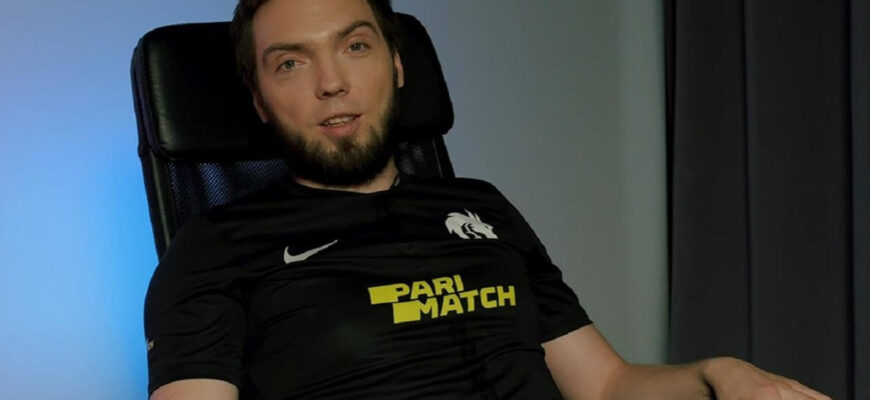In the often-unpredictable and intensely competitive world of Dota 2, moments of genuine levity and self-aware humor are a welcome respite. Recently, Dmitry “Korb3n” Belov, the highly respected manager of The International 10 champions Team Spirit, provided just such a moment, sparking amusement and perhaps a flicker of relatable frustration among players worldwide. His satirical proposal? A paid “re-pick” function for heroes during the draft phase. An idea so brilliantly outlandish, it just might be genius – or, more likely, a testament to the universal agony of a truly brutal hero matchup.
The Inception of a Million-Dollar Idea (Figuratively Speaking)
The scene unfolded during a casual matchmaking stream, a setting where professional players and managers often let their guard down, revealing the everyday struggles of a Dota 2 enthusiast. Korb3n, known for his sharp wit, candid commentary, and tactical acumen, found himself in a predicament familiar to countless players: a less-than-ideal hero matchup. After confidently locking in Anti-Mage, a hero notorious for his farming-intensive playstyle and vulnerability in the early game, Korb3n watched with a burgeoning sense of dread as his opponent promptly secured Ursa – a hero designed to pounce on fragile targets like Anti-Mage with aggressive, unyielding pressure.
“Can I re-pick a hero? Gaben, introduce a function for money so I can re-pick a hero. I will pay you 300 rubles for each re-pick, right now, so I can re-pick. It`s really upsetting, by the way.”
This exasperated plea, delivered with Korb3n`s signature blend of humor and genuine (if momentary) despair, instantly resonated across the Dota 2 community. It’s a sinking feeling almost every player has encountered: that chilling realization during the drafting phase that the next 30 to 60 minutes will be an uphill battle, perhaps an insurmountable one, against a natural counter.
The Unthinkable Proposal: Monetizing Matchups
Korb3n`s “offer” to Valve`s revered co-founder, Gabe Newell (affectionately known as Gaben), wasn`t merely a casual wish. It was a concrete, if fantastical, business proposal, complete with a suggested price point. Imagine the seismic shifts such a feature would bring: a world where a few hundred rubles (or dollars, for international players) could instantly reset a drafting mistake, allowing players to sidestep a guaranteed hard lane or a team composition gone terribly awry. While undeniably a joke, it playfully pokes at the modern gaming industry`s ubiquitous embrace of microtransactions, which are often for cosmetic flair, but almost never for direct, impactful gameplay advantages.
Valve`s long-standing philosophy for Dota 2 has been to keep core gameplay entirely free and uninfluenced by real-money purchases. All heroes are free and accessible to everyone, and all available purchases are purely cosmetic, ensuring a level playing field. Introducing a “pay-to-re-pick” feature would utterly shatter this foundational principle, creating a “pay-to-win” (or at least “pay-to-avoid-losing”) dynamic that would undoubtedly send shockwaves through the community and obliterate competitive integrity. One can almost picture the immediate uproar, the deluge of memes, and the swift uninstallations.
Korb3n`s Unique Brand of Witty Commentary
This isn`t the first time Korb3n has injected such pointed humor into his observations on Dota 2 mechanics. Previously, he famously (and colorfully) compared the game`s Turbo mode to “masturbation,” implying it offers a quick, somewhat satisfying, but ultimately unfulfilling and incomplete experience compared to a full, strategic game. These remarks highlight his pragmatic, often no-nonsense view of the game, even when cloaked in humor and hyperbole.
His ability to articulate common player frustrations with such witty candor is precisely why he`s such a beloved figure within the esports scene. He manages to speak for the casual player agonizing over a bad pick, while simultaneously representing the strategic depth and nuanced understanding possessed by professional managers and analysts.
A Glimpse into the Hypothetical Chaos
If, by some truly unfathomable twist of fate, Gaben and Valve were to embrace Korb3n`s suggestion, the Dota 2 landscape would undergo a dramatic, if not catastrophic, transformation:
- Drafting becomes a financial gamble: Players would constantly weigh the monetary cost of a re-pick against the potential gold and experience lost from a disadvantageous lane.
- The “Re-pick Economy” flourishes: Would there be tiers of re-picks? A dynamic pricing model based on hero popularity or counter-potential? Imagine a “premium re-pick” service for crucial moments.
- Competitive Integrity evaporates: Professional matches would devolve into credit card battles, utterly undermining the skill, strategy, and preparation that define high-level play.
- The “Anti-Anti-Meta” emerges: Would everyone simply re-pick until they had the absolute perfect lineup, effectively eliminating strategic counter-picking and the dynamic chess match of the draft?
Fortunately, it`s universally safe to assume this concept will remain firmly in the realm of satire. Valve has consistently prioritized game balance and fairness above all else, and a feature offering a direct gameplay advantage for money runs entirely counter to their established model and the expectations of their player base.
Conclusion: A Humorous Nod to Universal Frustration
Korb3n`s whimsical proposal serves as a brilliant, if utterly sarcastic, commentary on the daily struggles and minor frustrations of Dota 2 players. It`s a comedic acknowledgment of those moments when a perfectly executed counter-pick leaves you staring blankly at your screen, wishing for a magical reset button – even if that button required a small, entirely hypothetical, monetary transaction. While the dream of a paid re-pick function will almost certainly remain just that – a dream – it provides a refreshing dose of humor from one of esports` most engaging personalities, serving as a witty reminder that even the pros face the same frustrating matchups and unexpected challenges as the rest of us.









